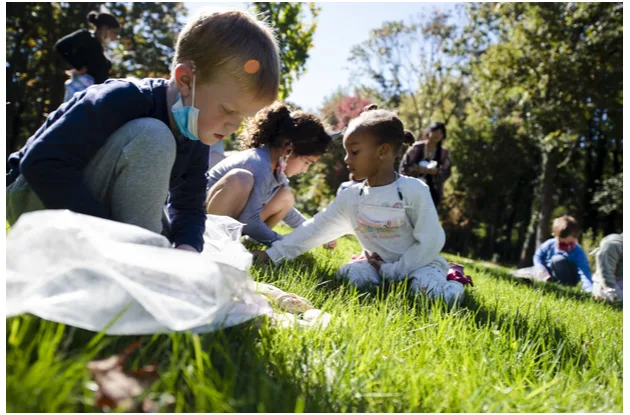When it comes time to choose a preschool for your child, there are many things to ponder, from how your child learns, to what your finances allow, and where you live. Infant expert and creator of The 3 Day Sleep Solution, Davis Ehrler, says that parents should consider carefully what they are looking for in a preschool. According to Ehrler, “It is important for parents to know how children learn during this time. Play is their form of learning and socializing. This is not the time for a child to be under academic stress.”

Here is some feedback from a few local parents who have been involved in the search:
Brooklyn Heights resident and yoga instructor Maddalena Maresca says she’s looking for a preschool for her 7-month-old daughter that “supports social, physical, linguistic and intellectual development through creative play and learning. Lots of different methods – music, artistic/visual, physical – not just reading and math – although those are just as important.”
Queens mom and New York University professor Gay Abel-Bey says, “Blocks are blocks, crayons are crayons. The best benefit of preschool is to take kids outside of the house, and let them play with other kids.”
Alejandra Pena is a marketing manager and the mother of two children. Pena and her husband interviewed with six preschools for their three-year-old son Dylan before choosing one in their Upper East side neighborhood. She describes her search as “an absolute nightmare.” Pena says, “The process is quite competitive and rigid, with interviews, essays, long application forms, etc. At the end, parents don’t have much of a choice just because there are not enough schools in Manhattan. The worse part is the lack of flexibility; one needs to plan for the process well in advance.” She suggests beginning the process a year in advance.
Tribeca resident Susan Cicotti is the mother of three boys, two of whom are in preschool. She was fortunate enough to find a small West Village preschool for her sons, where, she says, “The magic formula is a nurturing environment and energetic, creative teachers. For us, the emphasis was on nurturing our young learner, not growing a hot house flower who would someday attend Yale.”
There are enormous benefits to the early education a child gets in a good preschool. Ehrler notes, “It is clear that the things we learned in kindergarten once upon a time are now being taught in preschool.”
Robert Titzer, Ph.D., creator of the Your Baby Can Learn books, agrees and adds, “It is wise to teach a second language during this time. It is easier for your child to learn language skills at a high level early in life. This is true whether it is spoken language, written language, sign language or second languages. Your child’s brain will actually develop more efficiently if the second language is learned in the first four years of life compared to later in childhood.”
Dr. Titzer also comments on the preschool environment, saying that it should be “safe and contain interesting educational materials. An engaging environment will make it more likely the child wants to go to the preschool.”
Ehrler weighs in on the half-day or full-day preschool schedule. “It is best to wait until the child is 3 years old before she goes three days a week,” he says. “Half-day is best for a child under the age of 4. The number of days a week should match their age.”
The homeschooling option
Ehrler believes that “some of the greatest minds never went to preschool. If a parent wants to keep the child home during these years and parent/teach them to their liking, that should be respected.”
According to Dr. Titzer, “If you are motivated, intelligent and love learning, then homeschooling could be a great option. You and your child could learn and bond together.” Dr. Titzer homeschooled his own children for one year and invited other children to be schooled in his home. He says it helped his children socially — and it helped financially as well. “You can likely do many more educational activities with your child than almost any preschool. There are libraries where you can check out educational materials as well as books on most topics. Babies love stimulation and learning; most toddlers do as well. At some point in almost every child’s life, someone teaches the child that learning is work instead of fun. If you love learning, you can delay this experience for your child.”
But, he cautions, “Many parents will get burned out from this experience, so it is not for everyone.”
Queens native COURTNEY DALY-PAVONE is a freelance journalist who resides on both the east and west coast with her husband.





















